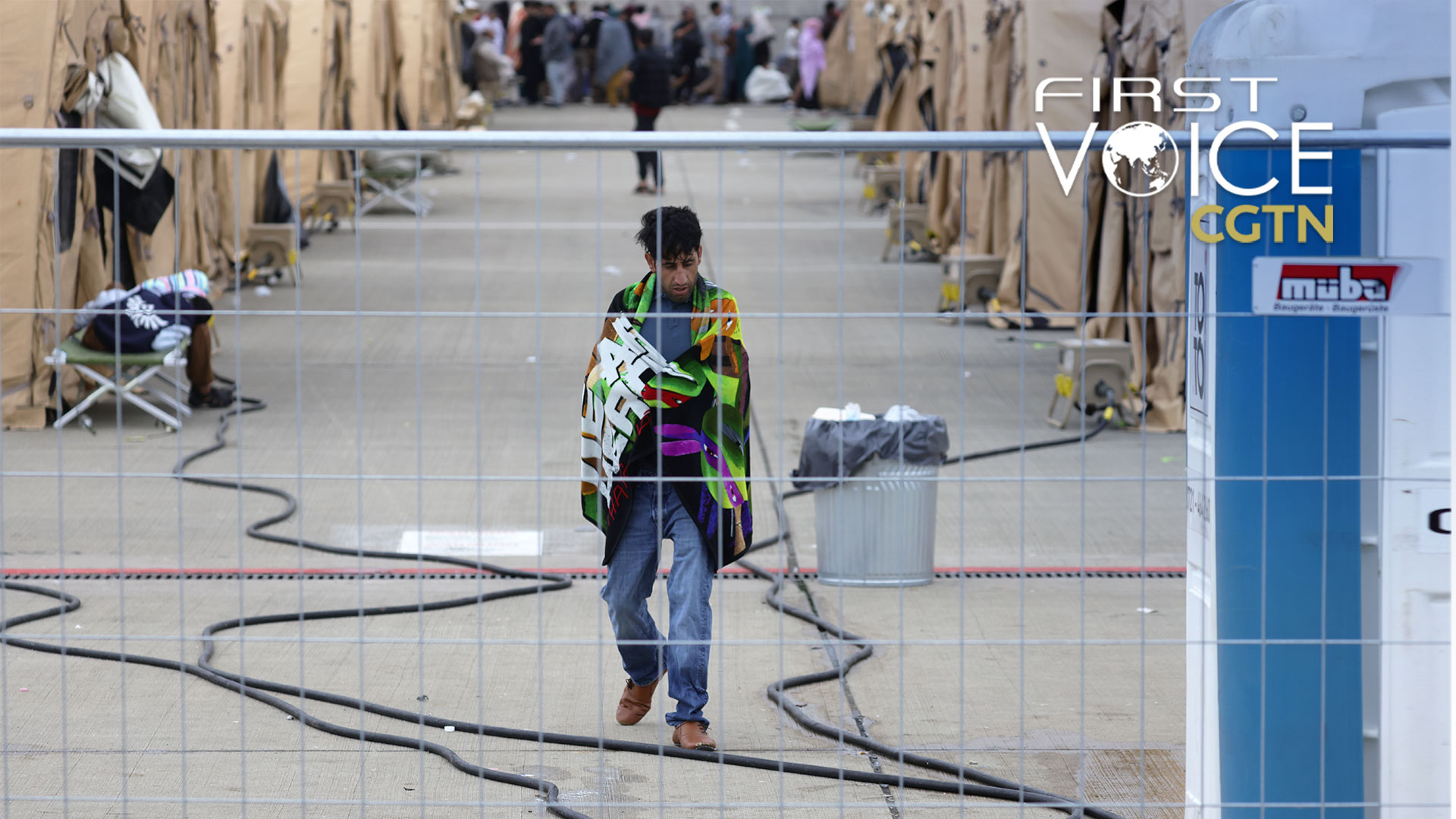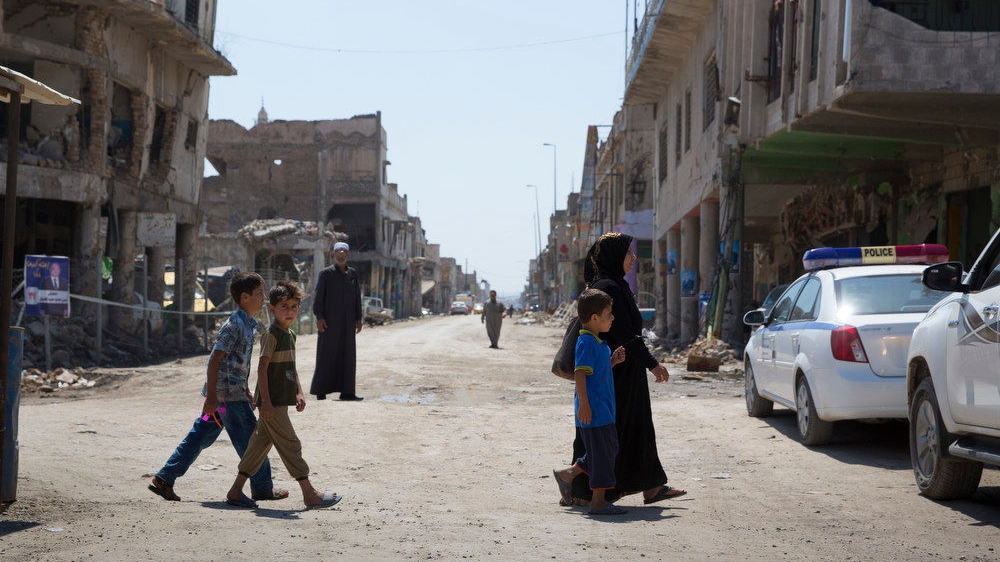
Editor's note: CGTN's First Voice provides instant commentary on breaking stories. The daily column clarifies emerging issues and better defines the news agenda, offering a Chinese perspective on the latest global events.
Amid the chaos of the rushed evacuations from Kabul, the ISIS group initiated terrorist attacks against the city's airport on August 26. U.S. President Joe Biden pledged revenge on the attackers in a televised address, but doubled down on his bid to hastily leave the country by the August 31st deadline after two decades of conflict and occupation have ended in sheer failure.
The United States is cutting its losses. While it mourns over the deaths of its personnel in the Central Asian country, there is otherwise little inclination that lessons have been learned nor is there remorse for America's own specific role in the destabilization, destruction and continuing disarray in the country. U.S. Secretary of State Antony Blinken once stated that remaining in Afghanistan is no longer in U.S.' national interests. This illustrates how America's self-depiction as a benevolent actor and force for good is in fact built entirely on quicksand.
What is American foreign policy all about? At its heart, the United States is a self-interested, aggressive and hegemonic actor who justifies the pursuit of its global interests in the name of spreading democracy and human rights, frequently by belligerence. America opportunistically believes that it has an exceptional mission to export its values and ideology to other countries, of which is frequently utilized in order to justify intervention in other countries' affairs and worse, war. In doing so, the U.S. has consistently rendered a zero-sum, dogmatic and simplistic view of the world with exaggerated caricatures of good and evil in order to buy public justification and support for its aggression.
America's "war on terror doctrine" was born from the Bush administration's firm belief that the key to defeating terrorist threats to the United States was the imposition of liberal democracy in the Middle East and Islamic world, seemingly oblivious to the fact that it was U.S. intervention exacerbated radicalization in the first place. This misplaced judgement after the 9/11 attacks led to a series of wars and upheavals throughout the Eurasia continent, including Afghanistan, Iraq, Syria and so on.

A war-damaged street in the old town of Mosul, Iraq, April 24, 2018. /Getty
A war-damaged street in the old town of Mosul, Iraq, April 24, 2018. /Getty
But of course, this binary view of world affairs never pays attention to the real issues and needs of which countries face. And it is no surprise that 20 years later, the disastrous conclusions of this stint are on display for the world to see. Public opinion on America's failure does not lie. CGTN Think Tank's survey found that 84.6 percent of respondents believed the Afghanistan war was a failure. Many also expressed their belief that these wars had been promulgated and justified on the back of lies and propaganda, especially when justifying other U.S. goals such as the economic or strategic exploitation of the countries targeted. The Iraq War for one, has always been a stand out case.
In reflecting on the legacy of American warfare since WWII, 88.89 percent of Spanish-speaking respondents, 82.14 percent of French-speaking respondents and 88 percent of Arabic-speaking respondents agree that "the war has brought negative impacts to relevant countries after World War II." Respondents believe that wars have brought "violence, poverty, suffering and even destruction." One can look not just at Afghanistan or Iraq, but the Korean War and Vietnam as definitive examples as to how America’s opportunism, masked by the zealousness of fighting evil, has inflicted great pain on many countries.
Warmongering has seen eroded America's reputation. It becomes callous, if not ridiculous, that the United States subsequently then frame itself as supporting Muslim human rights as it switches its impetus from the war on terror towards its campaign against China. How many have died in Afghanistan or Iraq as the consequences of America's actions? How can Washington seriously claim to represent or stand up for them?
As the U.S. leaves Afghanistan behind, there is no soul-searching nor reflection on America's intentions or efforts, but only that it no longer interests or benefits the U.S. to pursue this path anymore. The lives of the people of the invaded countries have never truly mattered. It was always about how Afghanistan could serve the interests and goals of America under the façade of human rights, of which Biden has been happy to discard when the focus shifted. This reveals the shallow, hollow and opportunistic impetus of America's role in other countries and regions: To destroy, to conquer, to desecrate, and then to leave the mess for everyone else to clean up.
(If you want to contribute and have specific expertise, please contact us at opinions@cgtn.com.)

